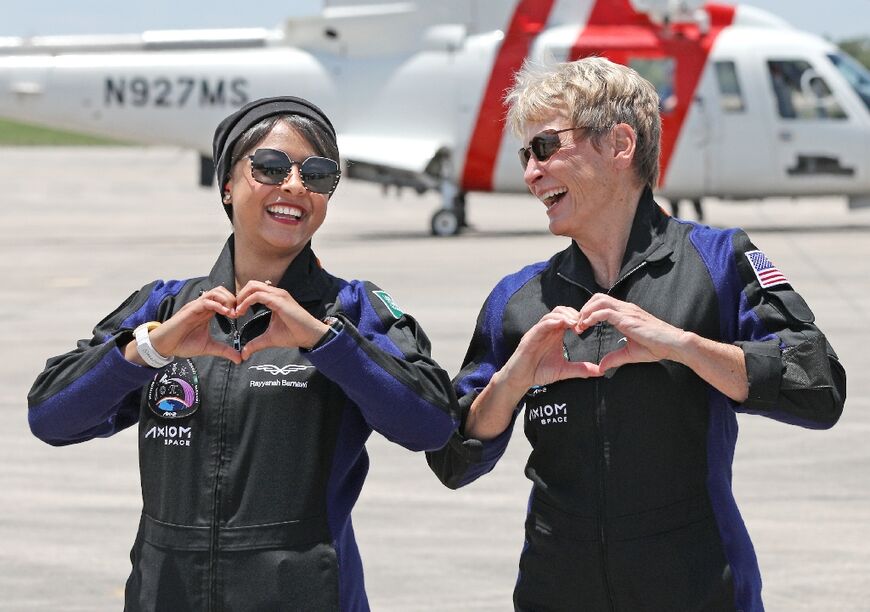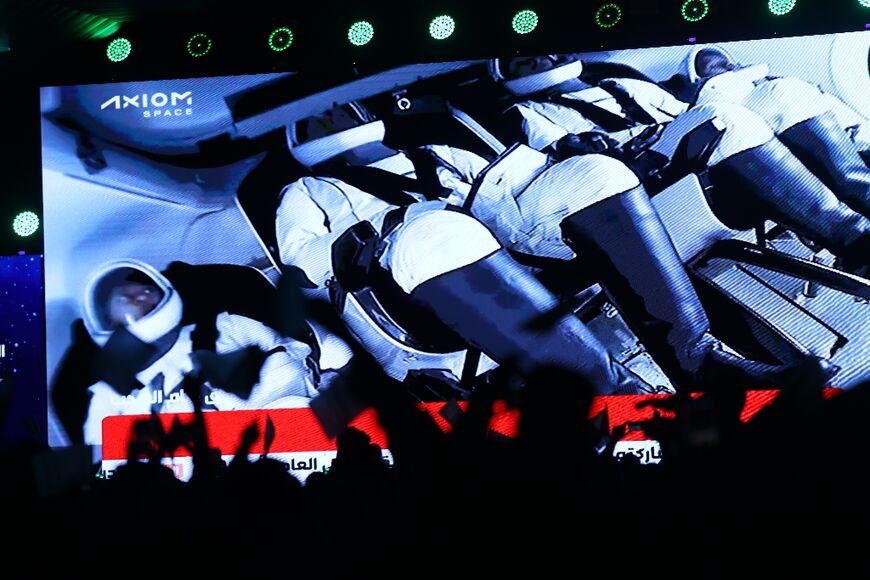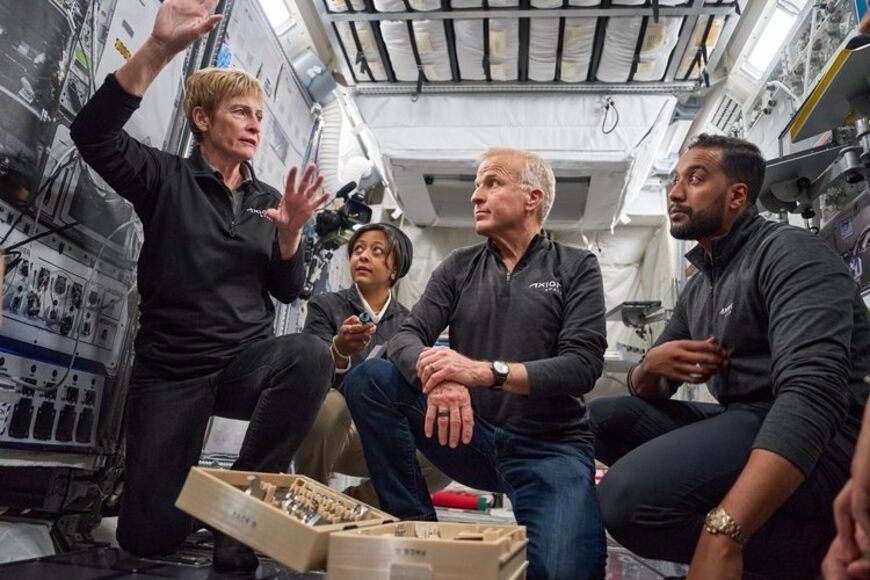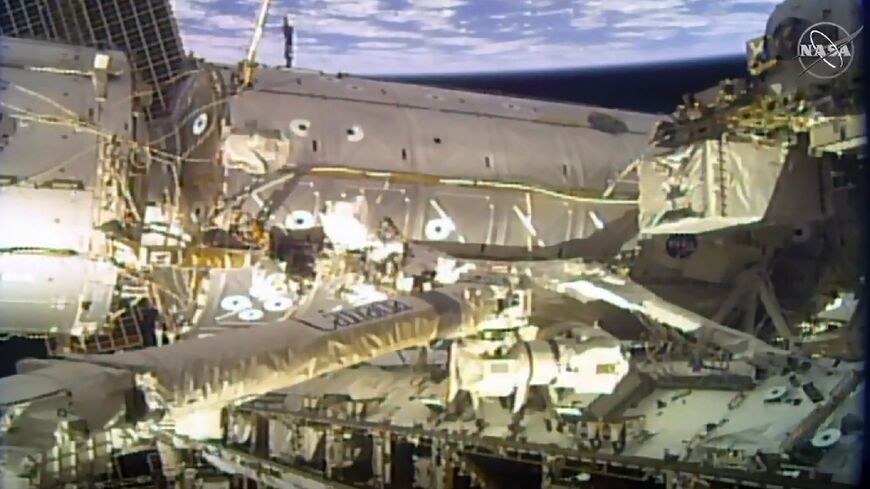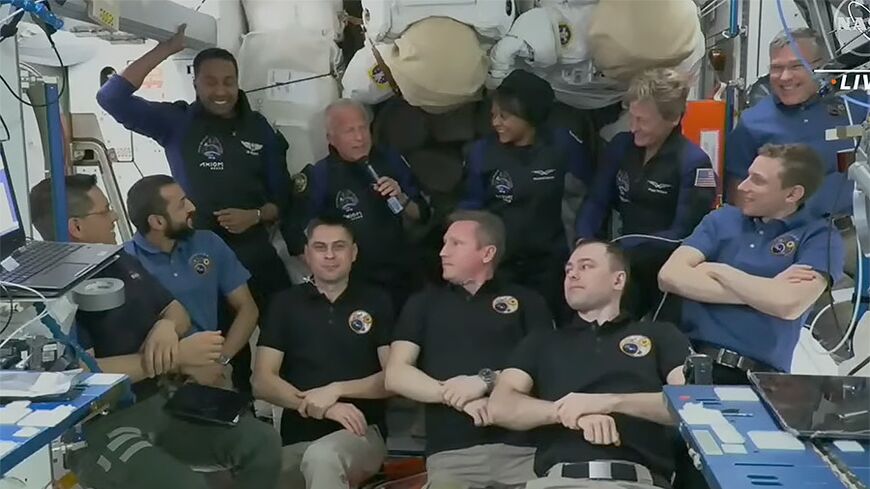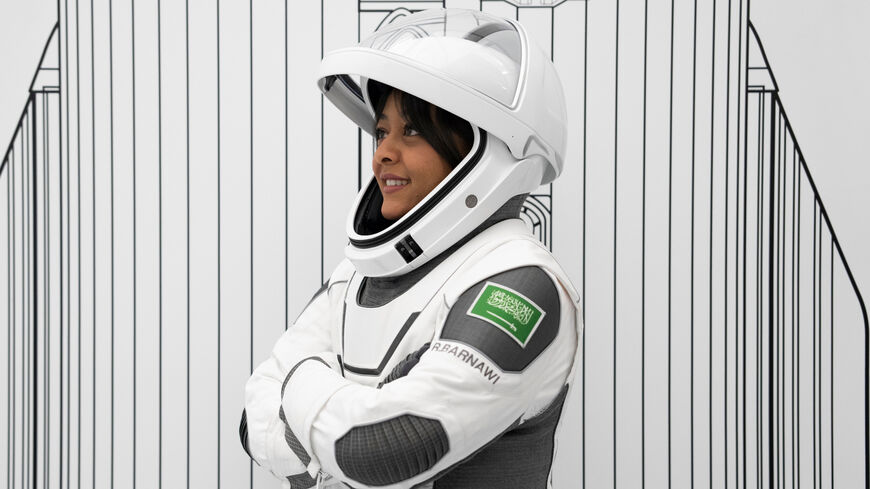Private mission carrying Saudi astronauts launches to ISS
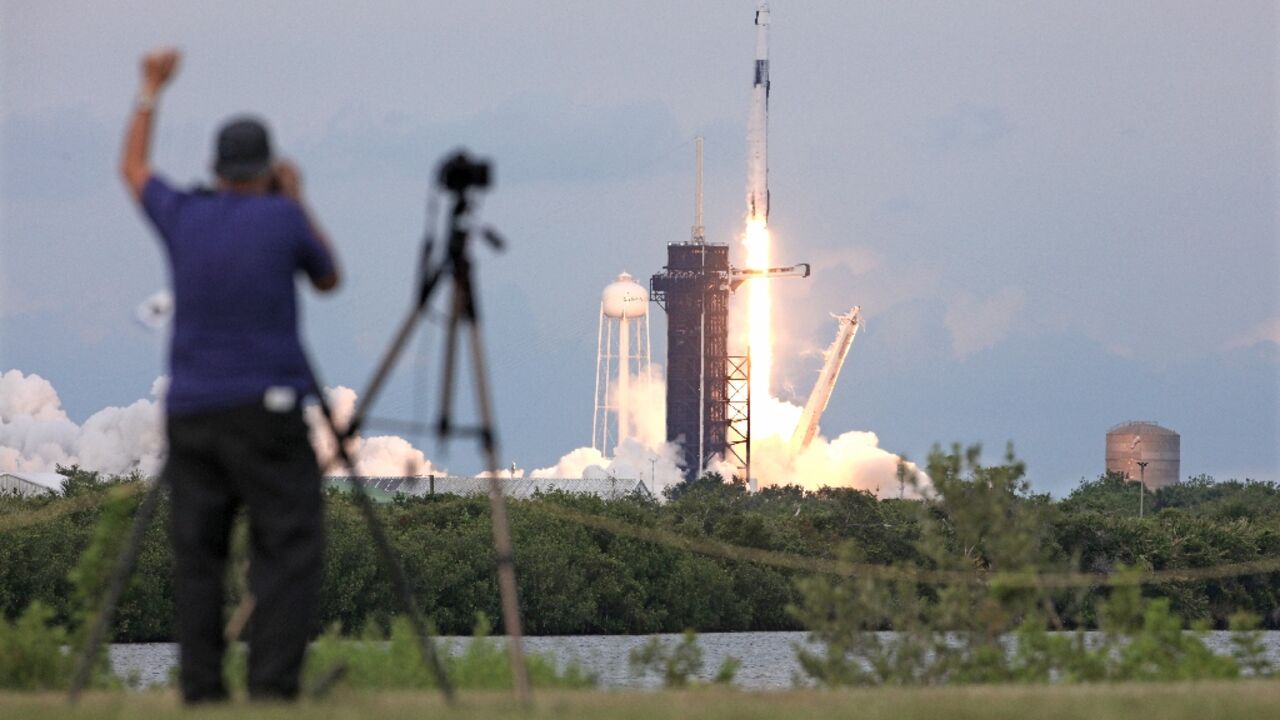
The second-ever private mission to the International Space Station (ISS), organized by Axiom Space, blasted off from the southern US state of Florida Sunday, carrying the first two Saudi astronauts to travel to the orbiting laboratory.
Rayyanah Barnawi, a breast cancer researcher, is the first Saudi woman to voyage into space and is joined on the mission by fellow Saudi Ali Al-Qarni, a fighter pilot.
The Axiom Mission 2 (Ax-2) crew took off aboard a SpaceX Falcon 9 rocket from the Kennedy Space Center in Cape Canaveral at 5:37 pm (2137 GMT).
The team also includes Peggy Whitson, a former NASA astronaut, who will be making her fourth flight to the ISS, and John Shoffner, a businessman from Tennessee, who is piloting.
"Thanks for putting your trust in the Falcon 9 team," SpaceX chief engineer Bill Gerstenmaier told the crew minutes after lift-off.
"Hope you enjoyed the ride to space. Have a great trip on Dragon," he added, referring to the spacecraft.
"Welcome home to zero-g, Peggy."
The crew is due to spend around 10 days on board the ISS, arriving around 9:25 am (1325 GMT) Monday.
"Being the first Saudi woman astronaut, representing the region, it's a great pleasure and honor that I'm very happy to carry," Barnawi said at a recent press conference.
She added that, aside from the research she will carry out on board, she was looking forward to sharing her experience on the ISS with kids.
"Being able to see their faces when they see astronauts from their own region for the first time is very thrilling," she said.
A career fighter pilot, Al-Qarni said he has "always had the passion of exploring the unknown and just admiring the sky and the stars."
"It is a great opportunity for me to pursue this kind of passion that I have, and now maybe just fly among the stars."
- 'Just the beginning' -
The mission is not Saudi Arabia's first foray into space.
In 1985, Prince Sultan bin Salman bin Abdulaziz, an air force pilot, took part in a US-organized space voyage.
"I reflect on my experience in space many years ago, and I am happy that Saudi Arabia has returned to space once again," he told AFP at a watch party for the Ax-2 launch in Riyadh.
"God willing, this is just the beginning."
The space mission involving a Saudi woman is the latest move by the country, where women only gained the right to drive a few years ago, to revamp its ultraconservative image.
The oil-rich Gulf kingdom established the Saudi Space Commission in 2018 and launched a program last year to send astronauts into space.
Scores of flag-waving Saudis gathered at the launch party in Riyadh beneath a massive white tent for the blast-off countdown.
Jawaher al-Sabhan, who came to the event with her 11-year-old son and 9-year-old daughter, said the moment gave her "indescribable feelings."
"I love space and exploration in general, and I love my children knowing about space and the advantages of exploring it," she said.
- Experiments -
The four-member team is set to carry out about 20 experiments while on the ISS.
One of them involves studying the behavior of stem cells in zero gravity.
They will join seven others already aboard the ISS: three Russians, three Americans, and Emirati astronaut Sultan al-Neyadi, who last month became the first Arab national to go on a spacewalk.
Ax-2 is the second Axiom Space mission in partnership with ISS keyholder NASA.
The private space company offers the voyages for sums that run into the millions of dollars.
Axiom Space also oversees training for the astronauts, charters their means of transport, and manages their stay in space.
The company carried out its first private mission to the ISS in April 2022, sending three businessmen and former astronaut Michael Lopez-Alegria into orbit for 17 days as part of Ax-1.
- Private space stations -
For Axiom Space, these missions are a first step toward an ambitious goal: the construction of its own space station, with the first module expected to launch in 2025.
The station would first be attached to the ISS before separating and orbiting independently.
NASA plans to retire the ISS around 2030 and to instead send astronauts to private stations, which will also host their own clients, leading the US space agency to encourage the development of programs by several companies.
Russia recently agreed to extend its use of the ISS until 2028, having threatened an earlier pullout last year as ties unraveled between the Kremlin and the West over Moscow's invasion of Ukraine.
